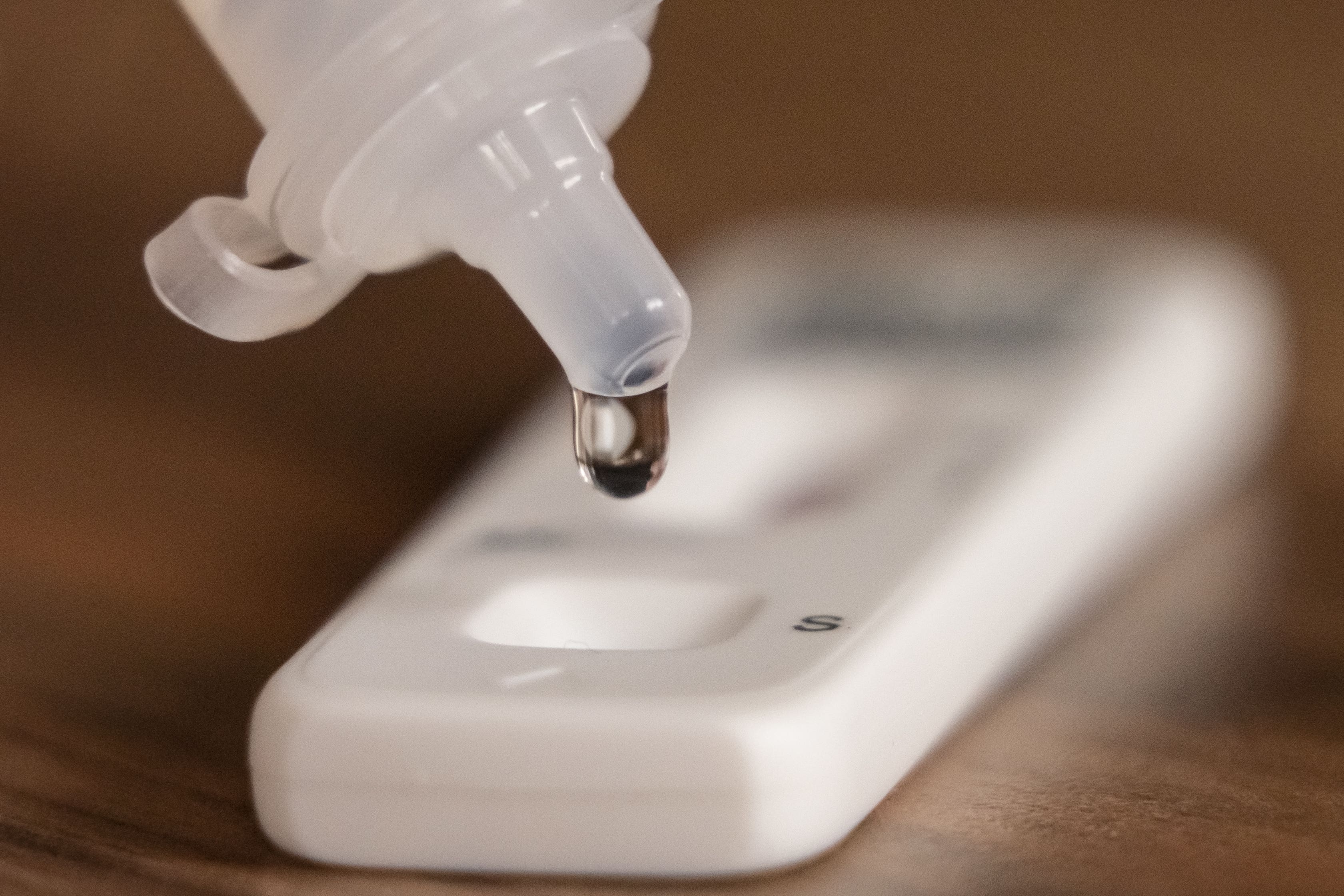Study sheds light on why some people do not get Covid-19
The findings may pave the way for treatments and vaccines not just for Covid, but other diseases too.

Your support helps us to tell the story
From reproductive rights to climate change to Big Tech, The Independent is on the ground when the story is developing. Whether it's investigating the financials of Elon Musk's pro-Trump PAC or producing our latest documentary, 'The A Word', which shines a light on the American women fighting for reproductive rights, we know how important it is to parse out the facts from the messaging.
At such a critical moment in US history, we need reporters on the ground. Your donation allows us to keep sending journalists to speak to both sides of the story.
The Independent is trusted by Americans across the entire political spectrum. And unlike many other quality news outlets, we choose not to lock Americans out of our reporting and analysis with paywalls. We believe quality journalism should be available to everyone, paid for by those who can afford it.
Your support makes all the difference.Researchers have shed new light on why some people do not get Covid-19.
In a world-first, 36 healthy people who had never had coronavirus were deliberately given the virus that causes the disease.
The study found their immune systems responded in a novel way, helping to explain how some people avoid getting Covid.
The findings may pave the way for treatments and vaccines mimicking these natural defences, not just for Covid, but potentially other diseases too.
These findings shed new light on the crucial early events that either allow the virus to take hold or rapidly clear it before symptoms develop
It is the first time scientists have been able to see how the body responds to a new disease from the very point of exposure.
According to the experts, their data can serve as a Rosetta stone for cells that cover various surfaces of the body, and immune cells, and reveals early responses associated with protection against infection.
Dr Marko Nikolic, senior author of the study at UCL and honorary consultant in respiratory medicine, said: “These findings shed new light on the crucial early events that either allow the virus to take hold or rapidly clear it before symptoms develop.
“We now have a much greater understanding of the full range of immune responses, which could provide a basis for developing potential treatments and vaccines that mimic these natural protective responses.”
The findings, published in Nature, provide the most comprehensive timeline to date of how the body responds to Covid exposure, or any infectious disease.
The scientists suggest it might be possible to extrapolate these findings to other infections, such as flu, and although the study only looked at Covid it is very likely that some of the findings might be similar across different infections.
As part of the UK Covid-19 Human Challenge study, led by Imperial College London, 36 healthy people were given the virus through the nose.
Researchers monitored the blood and lining of their noses, tracking the entire infection as well as the immune cell activity prior to the infection event for 16 volunteers.
The teams at the Wellcome Sanger Institute and UCL then used a technology called single-cell sequencing to generate a dataset of more than 600,000 individual cells.
Across all of those involved in the study, the team discovered previously unreported responses involved in immediate virus detection.
This included activation of specialised immune cells in the blood and a reduction in inflammatory white blood cells that normally engulf and destroy pathogens.
People who were able to immediately fight off the virus did not show a typical widespread immune response but instead mounted subtle, never-seen-before innate immune responses, researchers say.
Dr Rik Lindeboom, co-first author of the study, now at the Netherlands Cancer Institute, said: “This was an incredibly unique opportunity to see what immune responses look like when encountering a new pathogen – in adults with no prior history of Covid-19, in a setting where factors such as time of infection and comorbidities could be controlled.”
Researchers from the Wellcome Sanger Institute, University College London, Imperial College London, the Netherlands Cancer Institute and their collaborators conducted the work which is part of the Human Cell Atlas initiative to map every cell type in the human body.